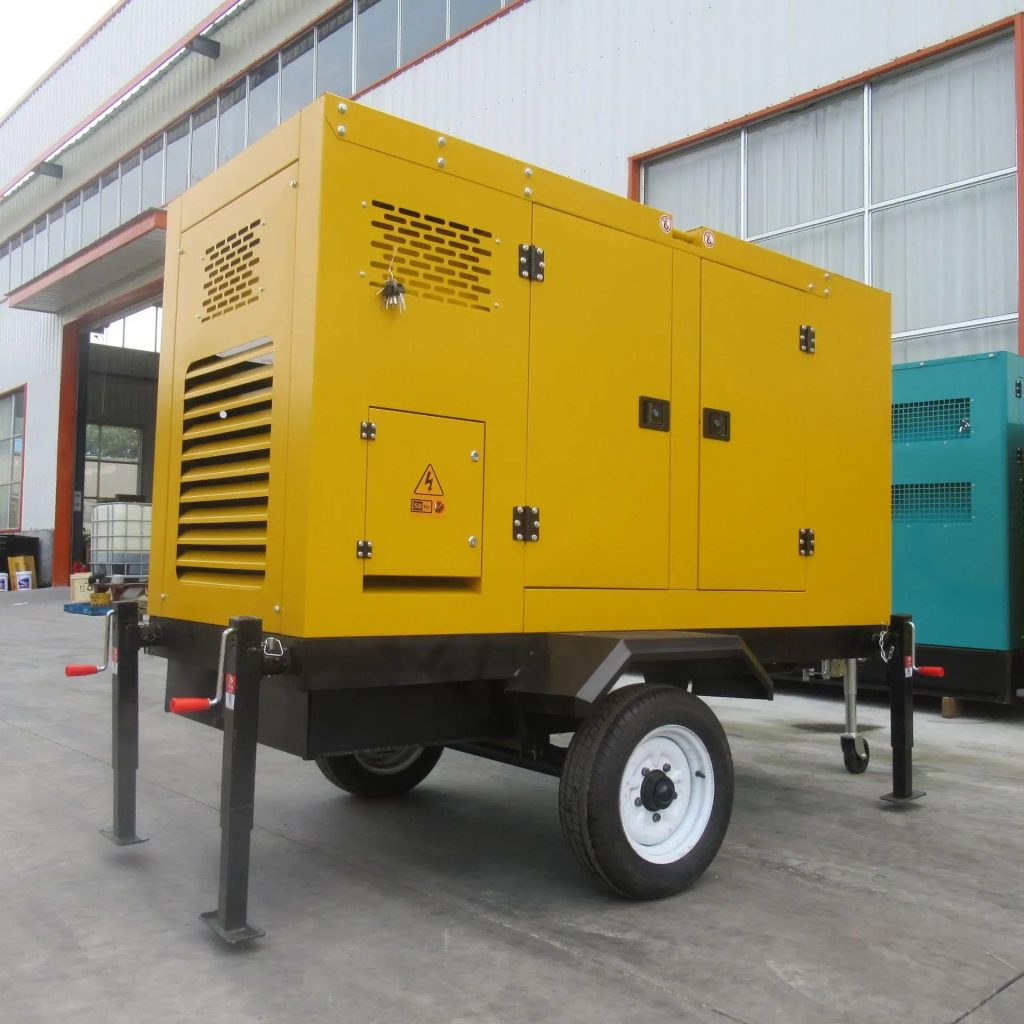Diesel Generators and Environmental Standards A Comprehensive Analysis
Introduction
Diesel generators play a crucial role in providing backup power in various industries and settings. However, the widespread use of diesel generators has raised concerns about their environmental impact. In recent years, there has been growing awareness and emphasis on environmental standards and regulations to mitigate the negative effects of diesel generators on air quality, noise pollution, and overall environmental sustainability. This article aims to provide a comprehensive analysis of diesel generators in relation to environmental standards, exploring the current challenges, regulations, and advancements in technology aimed at reducing their environmental footprint.
Overview of Diesel Generators
Diesel generators are a type of combustion engine that converts diesel fuel into electrical energy. They are commonly used as backup power sources in critical applications such as hospitals, data centers, telecommunications facilities, and construction sites where a reliable power supply is essential. Diesel generators are preferred for their durability, high energy efficiency, and ability to provide power for extended periods without interruption.
Despite their benefits, diesel generators are known for their significant emissions of pollutants such as nitrogen oxides (NOx), particulate matter (PM), carbon monoxide (CO), and volatile organic compounds (VOCs). These pollutants can have adverse effects on human health, contribute to smog formation, and contribute to climate change. In addition to emissions, diesel generators also produce noise pollution, which can impact the quality of life for surrounding communities.
Environmental Standards and Regulations
To address the environmental impact of diesel generators, governments and regulatory bodies around the world have implemented a range of environmental standards and regulations. These standards aim to limit the emissions of pollutants from diesel generators, promote the use of cleaner technologies, and encourage the adoption of best practices to minimize environmental harm.

One of the key environmental standards that apply to diesel generators is the emission limits for pollutants such as NOx, PM, CO, and VOCs. These limits are typically set by regulatory agencies based on the size and application of the diesel generator. In the United States, for example, the Environmental Protection Agency (EPA) sets emission standards for non-road diesel engines, including those used in generators.
In addition to emission limits, environmental standards may also include requirements for the installation, operation, and maintenance of diesel generators to minimize their environmental impact. These requirements may cover aspects such as exhaust gas treatment systems, fuel quality, noise mitigation measures, and monitoring of emissions.
Advancements in Technology
In recent years, there have been significant advancements in technology aimed at reducing the environmental impact of diesel generators. These advancements include the development of cleaner fuel options, improved engine designs, and the integration of emissions control technologies.
One of the key advancements in diesel generator technology is the use of alternative fuels such as biodiesel, natural gas, and hydrogen. These fuels offer lower emissions of pollutants compared to traditional diesel fuel and can help reduce the environmental impact of diesel generators. Biodiesel, for example, is a renewable fuel that can be produced from vegetable oils or animal fats and can be used as a drop-in replacement for diesel fuel in existing generators.
Another important advancement is the development of diesel engines with improved combustion efficiency and emissions control systems. Modern diesel engines are equipped with technologies such as selective catalytic reduction (SCR), diesel particulate filters (DPF), and exhaust gas recirculation (EGR) to reduce emissions of NOx, PM, and other pollutants. These technologies help diesel generators meet stringent emission standards and operate more cleanly and efficiently.
Furthermore, advancements in engine design and control systems have led to improvements in fuel efficiency and overall performance of diesel generators. Integrated Industrial Diesel Generator that optimize engine operation based on load demand, temperature, and other factors can help reduce fuel consumption and emissions while ensuring reliable power supply.
Best Practices for Environmental Compliance
In addition to technological advancements, there are several best practices that operators of diesel generators can follow to ensure environmental compliance and minimize their impact on the environment. These best practices include:
1. Regular maintenance and servicing of diesel generators to ensure optimal performance and reduce emissions.
2. Proper fuel management to use high-quality fuel and minimize fuel losses and spillage.
3. Installation of emissions control technologies such as SCR and DPF to meet emission standards.
4. Noise mitigation measures such as soundproof enclosures and mufflers to reduce noise pollution.
5. Compliance with local regulations and standards for the operation of diesel generators.
By following these best practices, operators can not only comply with environmental standards but also contribute to a cleaner and more sustainable environment.
Conclusion
Diesel generators play a vital role in providing backup power in various applications, but their environmental impact has raised concerns about air quality, noise pollution, and overall sustainability. To address these issues, governments and regulatory bodies have implemented environmental standards and regulations to limit emissions and promote cleaner technologies. Advancements in technology, such as the use of alternative fuels and emissions control systems, have helped reduce the environmental footprint of diesel generators. By following best practices for environmental compliance, operators can minimize the impact of diesel generators on the environment and contribute to a more sustainable future.